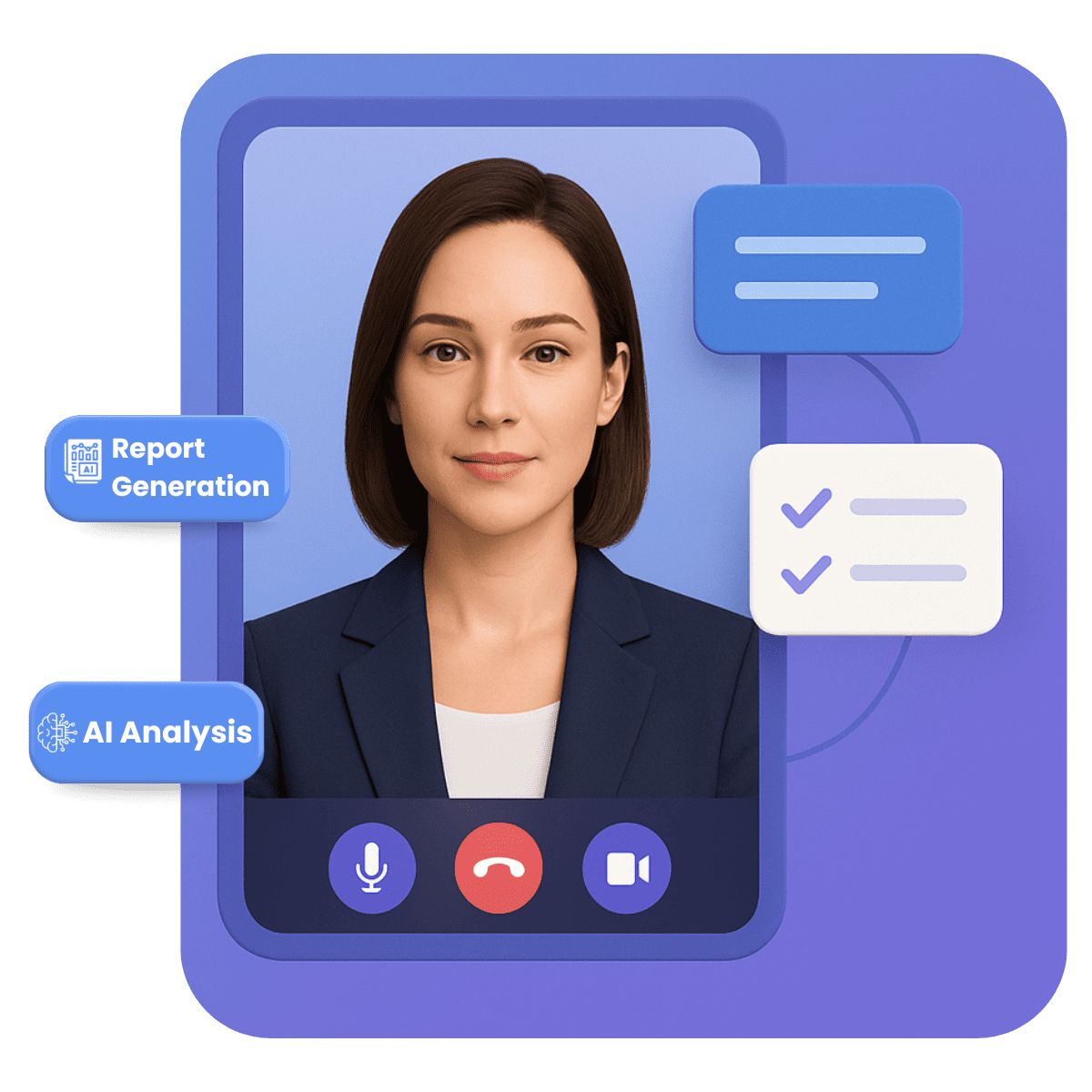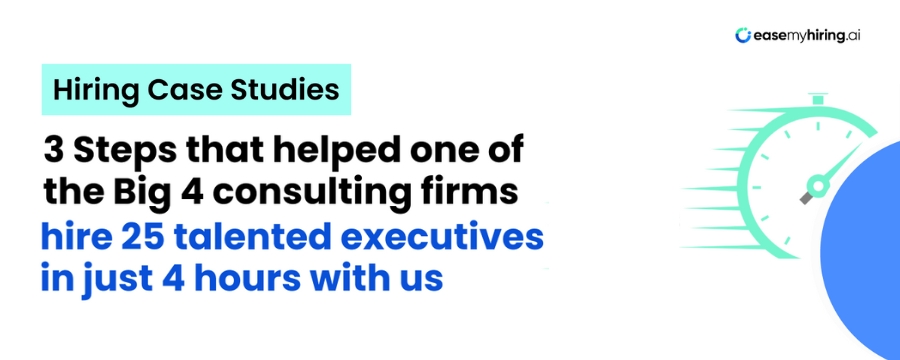Introduction
The traditional interview process has remained largely unchanged for decades – a candidate sits across from one or more interviewers, answers questions about their experience and skills, and hopes to make a good impression. But artificial intelligence is now revolutionizing this process in ways that benefit both candidates and employers.
According to recent data, 76% of recruiters believe that AI will significantly impact their hiring processes in the next two years, while 85% of job seekers report feeling more anxious about interviews than any other part of the job search process. This creates a perfect opportunity for AI to bridge the gap by providing tools that help candidates prepare more effectively while giving employers better insights into candidate abilities.
In this article, we’ll explore the transformative impact of AI on interview preparation, execution, and evaluation, with a focus on how these technologies are creating more equitable, efficient, and insightful hiring experiences.
Challenges in Traditional Interview Processes
Before exploring AI solutions, it’s important to understand the limitations of traditional interview methods that new technologies aim to address:
- Subjective evaluation Human interviewers often bring unconscious biases to candidate assessment, leading to decisions based on factors unrelated to job performance.
- Limited preparation resources Candidates typically rely on generic interview questions and advice that may not be tailored to their specific industry or role.
- Inconsistent experiences The quality and consistency of interviews can vary dramatically based on the interviewer's skill, experience, and current mood.
- Inadequate feedback Candidates rarely receive detailed, constructive feedback after interviews to help them improve for future opportunities.
- Time and resource intensity Traditional interviews require significant coordination of schedules and can be costly for both candidates and employers.
The problem with traditional interviews is they’re simultaneously high-stakes for the candidate and low-signal for the employer. AI tools can flip this equation by increasing the information density while reducing pressure.
"AI-Powered Interview Tools
The latest generation of AI interview tools offers solutions across the entire interview lifecycle:
AI Interview Preparation Platforms
Platforms like EaseMyHiring’s Guru AI offer candidates the ability to practice with AI interviewers that simulate real interview conditions. These systems provide:
- Industry-specific questions Questions tailored to particular job roles, industries, and even specific companies.
- Real-time feedback Immediate analysis of answer content, delivery style, and non-verbal communication.
- Unlimited practice The ability to practice 24/7 without the stress of inconveniencing a human mock interviewer.
- Progress tracking Detailed analytics showing improvement over time in various interview competencies.
AI-Augmented Interviewing Systems
For employers, AI systems can enhance the interviewing process by:
- Question recommendation Suggesting relevant, job-specific questions based on the role requirements.
- Response analysis Evaluating candidate responses for content, relevance, and alignment with job requirements.
- Automated screening Conducting initial interviews to efficiently identify promising candidates.
- Bias detection Identifying potentially biased language or evaluation patterns in hiring teams.
Post-Interview Analytics
After interviews are complete, AI tools provide insights through:
- Comprehensive reports Detailed analysis of candidate performance across multiple dimensions.
- Comparative evaluation Standardized assessment frameworks that allow fair comparison between candidates.
- Improvement recommendations Specific guidance for candidates on how to enhance their interview performance.
- Process optimization Analytics for employers to refine their interview process for better outcomes.
Key Benefits of AI in Interview Processes
For Candidates
AI-powered interview tools provide numerous advantages for job seekers:
- Reduced anxiety Practice in a low-stakes environment helps candidates build confidence.
- Personalized preparation Targeted feedback addressing individual strengths and weaknesses.
- Skill development Specific guidance on improving communication, content, and presentation.
- Accessibility Equal access to high-quality interview preparation regardless of personal network or resources.
- Time efficiency Ability to practice at convenient times without scheduling constraints.
For Employers
Companies implementing AI interview technologies report significant improvements in their hiring processes:
- Consistent evaluation Standardized assessment criteria applied equally to all candidates.
- Bias reduction Decreased influence of unconscious biases in the hiring process.
- Efficiency gains Improved alignment between candidate skills and job requirements.
- Data-driven decisions More objective hiring decisions based on measurable performance metrics.
According to a recent study by Harvard Business Review, companies using AI interview tools saw a 23% increase in quality of hire and a 35% reduction in time-to-hire compared to traditional methods.
"Real-World Success Stories
Individual Success: Vaishnavi's Journey
Vaishnavi S., a software engineer, had been through multiple interview rounds for prestigious tech companies but consistently fell short in the final stages. After using EaseMyHiring’s AI interview platform for two weeks, she noticed significant improvement in her communication clarity and technical answer structuring.
“After practicing with Guru AI for two weeks, I felt so confident during my interview at a major tech company. The AI provided feedback on my tendency to give overly complex answers without clear structure, which was exactly what my actual interviewers had mentioned during previous rejections,” she explains.
Vaishnavi successfully landed a role at her dream company after making these adjustments, crediting the specific, actionable feedback from the AI system with helping her identify blind spots she hadn’t been aware of.
Institutional Success: Tech University
Tech University implemented AI interview preparation as part of their career services offering, providing all final-year students with access to EaseMyHiring’s platform. Within one academic year, they saw their placement rate increase by 32% and the average starting salary of graduates rise by 17%.
The university’s career services director notes: “Our students were technically brilliant but often struggled with articulating their accomplishments and demonstrating soft skills in interviews. The AI system gave them the practice and feedback they needed, resulting in our best placement statistics in a decade.”
The Future of AI in Interviews
As AI technology continues to evolve, we can expect even more sophisticated interview tools with capabilities such as:
- Emotion recognition: More nuanced analysis of candidate emotional states and engagement levels.
- Cultural fit assessment Evaluation of alignment between candidate values and company culture.
- Predictive performance modeling AI systems that can predict on-the-job performance based on interview responses.
- Hyper-personalized coaching Adaptive systems that build custom improvement plans for each candidate's specific needs.
- Virtual reality interviews Immersive practice environments simulating specific workplace scenarios.
While these advancements hold tremendous promise, they also raise important ethical considerations around privacy, consent, and algorithmic bias that the industry must address proactively.
"Conclusion
AI is not replacing human judgment in the interview process but augmenting it with data-driven insights, standardized evaluation frameworks, and personalized preparation tools. The result is a more equitable, efficient, and effective hiring process that benefits both candidates and employers.
For job seekers, AI interview tools like EaseMyHiring’s Guru AI represent an opportunity to level the playing field, accessing high-quality interview preparation resources that were once available only to those with extensive professional networks or the means to hire expensive coaches.
For employers, these technologies offer a way to make better hiring decisions while reducing both time-to-hire and cost-per-hire metrics, ultimately leading to more successful placements and higher-performing teams.
As we move further into the 2020s, AI-powered interview solutions will become an increasingly standard part of the hiring landscape – not as a replacement for human connection, but as a tool to make those connections more meaningful, equitable, and productive.




You have made some really good points there. I looked on the net to find out more about the issue and found most people will go along with your views on this website.